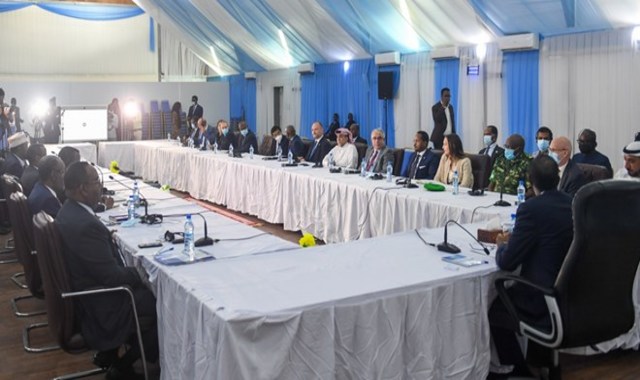
Somali leaders have agreed to conclude the long-delayed parliamentary and presidential elections by February 25. Somalia’s international partners on Monday welcomed the deal but a political stand-off between the president and prime minister has some Somalis still skeptical.
According to Mohamed Ibrahim Moalimu, the spokesman of the prime minister, all involved in the electoral process should respect the rules in order to move forward.
He said in order to safeguard the close coordination of the electoral body, the national consultative council calls upon various levels of the poll management agency to respect the rules and regulations as per the existing electoral agreements. He added the council reiterates respect for the 30 percent quota of seats to be held for women in the ongoing process.
The indirect polls were supposed to be held more than a year ago, but were delayed by disputes over how they would be conducted. More recently, President Mohamed Abdullahi Mohamed and Prime Minister Mohamed Hussein Roble have been at odds over election procedures, heightening the political tensions.
Residents of the capital Mogadishu who witnessed tensions linked to the electoral impasse have welcomed the deal.
Liban Mohamed said the new agreement reached is great because it brings together both Somali leadership and the people and we pray for its successive implementation.
However, many analysts are skeptical about the deal, especially the timeline.
Omar Abdulle is a political analyst and lecturer of political science and international relations at SIMAD university in Mogadishu.
He said the deal is generally welcomed but it will face three main challenges including the timeline set to conclude the parliamentary polls with 45 days. Secondly, the dispute resolution committee where the difference between president and prime minister started; and thirdly the agreement does not make it clear who will select the tribal leaders, which will result in conflict later.
The U.N. office in Somalia has urged Somali leaders to avoid provocations that risk new tensions or conflict and stay focused on delivering a credible electoral process quickly for the benefit of all.
Source:- VOA
